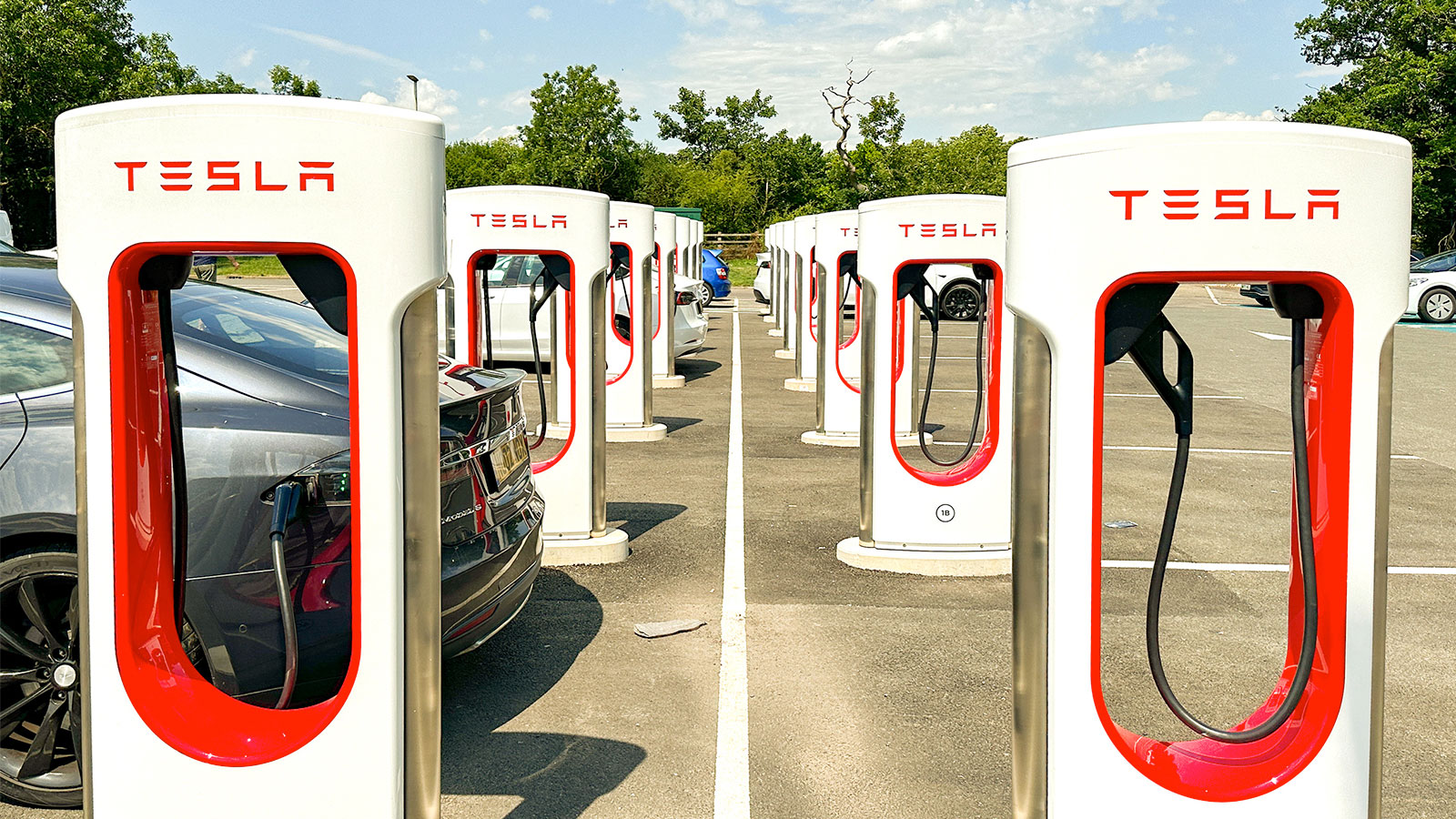The UK Government failed to meet one of its key EV targets for 2023, with it falling short of its plan to equip every motorway service station with six or more rapid chargers.
While the number of high-powered chargers has seen a surge since Spring 2023, with over 170 new units installed, the promised land of six or more chargers at every pit stop remains out of reach for many EV drivers.
That’s according to the RAC’s comprehensive survey of 119 motorway services, which revealed that only 39% currently offer the Government’s target number of chargers, leaving the rest stuck in the slow lane of frustratingly long refueling times.
“It’s clear from our research that the Government has fallen well short of its target,” commented RAC EV spokesperson Simon Williams.
“While some good progress has been made, we’re still far from the widespread availability of rapid chargers that’s crucial for giving both current and future EV drivers confidence to make longer journeys.”
But amidst the missed target, there are also glimmers of hope. More than half of motorway services now boast ultra-rapid chargers, capable of slashing charging times to a fraction of what they once were. And 70% of all high-powered motorway charging is now ultra-rapid, a testament to the rapid evolution of the technology.
However, the gaps in the network remain glaring. 18 service areas lack even basic rapid charging, leaving some EV drivers with nowhere to top up their batteries. Worse still, four services offer no publicly accessible charging facilities at all, essentially becoming electric vehicle ghost towns on the nation’s highways.
“We continue to believe that the wide availability of ultra-rapid charging is crucial in giving both current and future EV drivers confidence to know they can easily make journeys beyond the range of their vehicles in a time-efficient way,” Williams emphasised.
So, what’s holding back the full-throttle rollout of rapid chargers? Often, it’s not a lack of willing service operators or charge point companies, but the bureaucratic tangle of grid upgrades needed to power the new chargers.
This is perfectly demonstrated at Moto Medway on the M2 in Kent, which promised to install 48 new EV chargers. Despite being announced in 2022, however, the chargers remain idle as the service station continues to wait for its grid upgrade.
The Government’s £950m Rapid Charging Fund and a recent £70m pilot scheme for upgrades at 10 service stations offer a glimmer of hope, but for the hundreds of charging deserts that remain, the wait for a truly connected electric highway stretches on.

